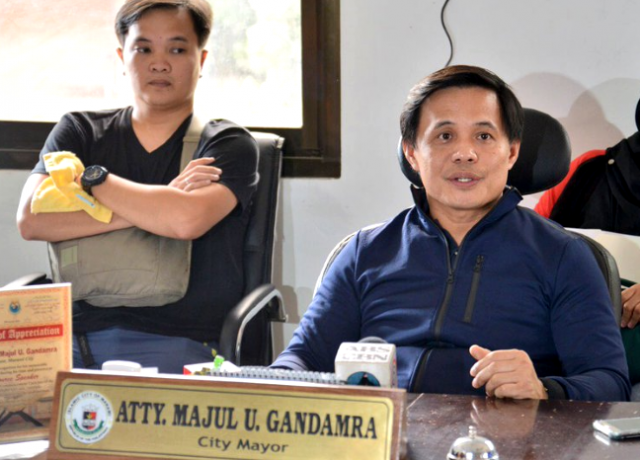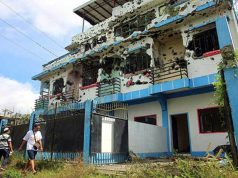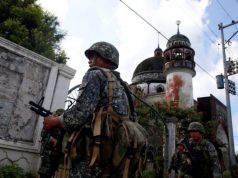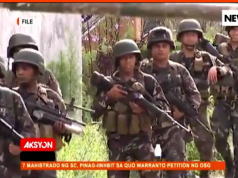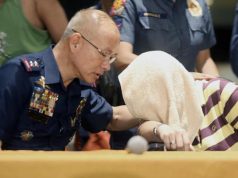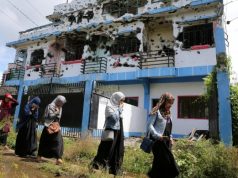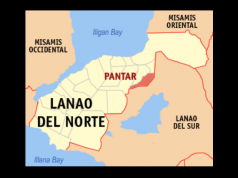To prevent another extremist attack from happening in their besieged city, Marawi City Mayor Majul Usman Gandamra on Tuesday urged residents of the Islamic City of Marawi “to be proactive” in the fight against terrorism by cooperating with the government and preventing their relatives from being recruited into violent jihadist and radical groups.
Asked in a radio interview about the lessons learned from the five-month standoff, Mayor Gandamra said Marawi folk should be quick in reporting suspicious or unusual activity to authorities.
“Dapat po talaga ang ating kababayan ay magkaroon ng social responsibility and accountability. ‘Pag tayo po ay makakaramdam, makakakita ng hindi kanais-nais ay dapat po natin i-report sa ating mga authorities (Our people should exercise social responsibility and accountability. If they detect anything untoward, they should report it to our authorities),” he said.
“This is not the problem of just the authorities but of the whole community,” he added.
Gandamra also called on to his constituents to prevent their relatives from being recruited into the ranks of violent extremist groups: “We should also see to it that our relatives are not easily persuaded to join.”
It discovered that the Islamic State-inspired terrorist Maute group had started recruiting and training children to become jihadist militants as early as 2009, or some eight years before the group entered into a strategic alliance last May with Abu Sayyaf Group leader Isnilon Hapilon to seize Marawi City for the purpose of establishing a “wilayat”, or Islamic State stronghold, in Southeast Asia.
Even as the fighting in Marawi raged, members of the Maute group reportedly offered money and weapons as part of their recruitment drive, even as other non-combatants were coerced and conscripted to work or fight alongside them.
Gandamra said terrorist groups also attempted to convince young professionals from colleges and universities, not only in Mindanao but also beyond, to become part of their movement.
“We should safeguard not just the government but also our family circles and communities against the encroachment of radicalism,” he said.
Meanwhile, the post-conflict damage assessment has begun in the war-torn city following its liberation and the cessation of combat operations, even as the local government gets busy bringing back displaced residents as temporary shelters are being constructed.
He added that restoring basic services in the city, such as safe water and electricity, is the priority. Damage to many components of the waterworks, such as the network of distribution pipes and the central processing facility, would have to be assessed for rehabilitation.

